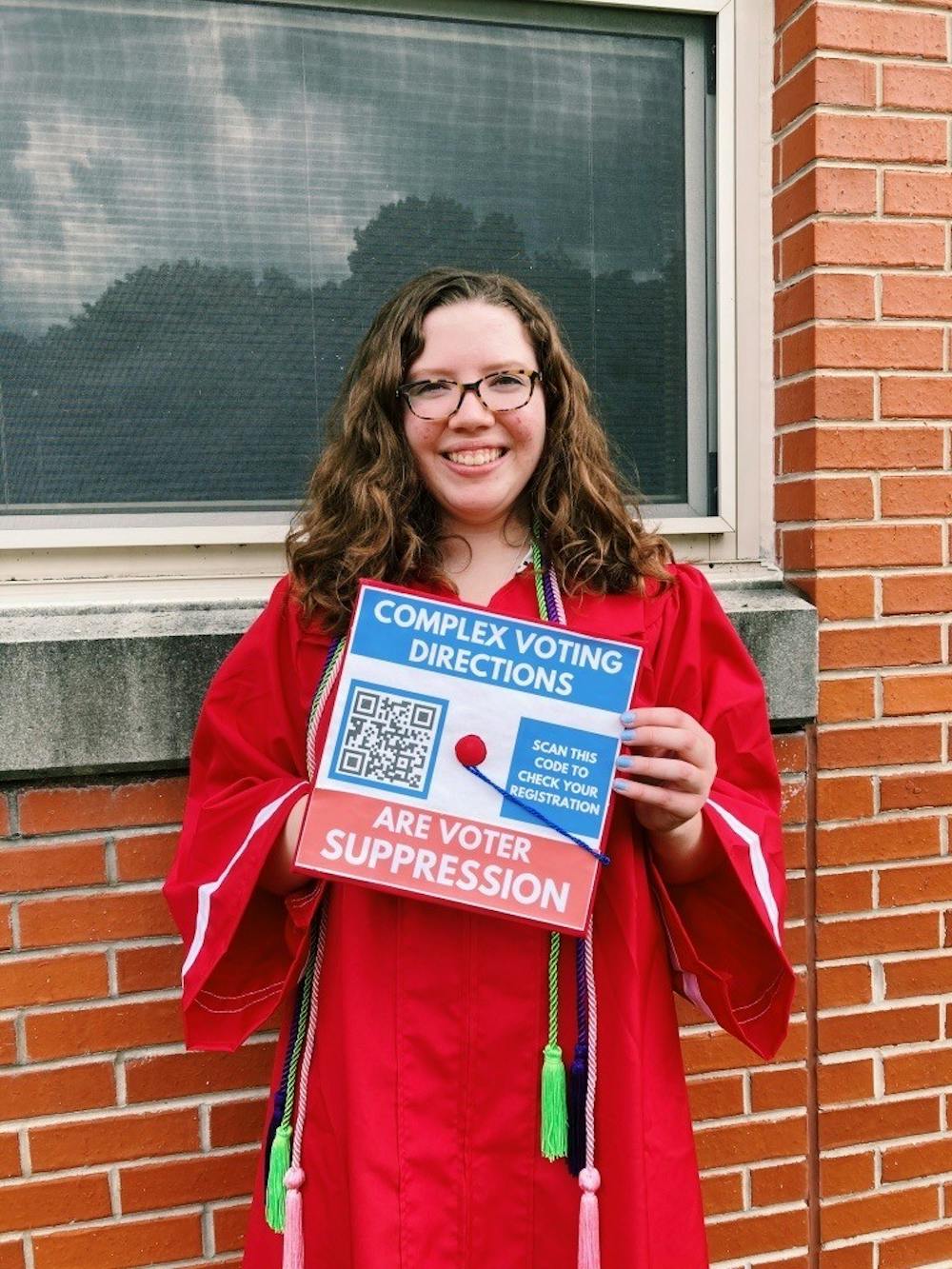Eighteen-year-olds quarantining across the country have spent the last six months in sweatpants, on couches, in front of TV screens; in COVID-19, many saw boredom, apathy, and frustration. Hope Perry ’24 saw an opportunity.
In late May, a friend reached out to her for help — she was struggling to register to vote in Florida, the state where she was planning to attend college. After spending hours scouring state and federal election websites only to be left more confused than when she started, Perry had an epiphany: voting just shouldn’t be this hard.
Now, she felt inspired to help her peers get to the ballot box this November.
It wouldn’t be her first time doing work around civic engagement. During her junior year of high school, Perry joined her high school’s Model Congress Team to learn more about domestic policy. Only a year later, she advocated for a statewide civic education curriculum on the floor of the New Jersey State Senate.
Despite her devotion to voting rights, Perry often found herself frustrated in her new goal. Her friends and former classmates at Lawrence High School would often turn to her for advice on registering to vote, but she realized that in many cases the tools to help them weren’t readily available.
For Perry, the solution became obvious: she would make the tools herself.
Perry envisioned a resource in which college-aged people — who comprise 10 percent of voters in the coming election — could stay civically engaged and access all of the necessary resources to register to vote, without the hassle of navigating confusing state websites. Based in this vision, College Voters United was born.
“The purpose of our website,” Perry told The Daily Princetonian, “is to make it as easy as possible for college students to access the information they need to register and vote.”
On July 28, nearly a month after Perry first founded the project, her organization’s website officially launched. The website is a one-stop-shop for all voter registration information for college students from all 50 states, including information on applying for absentee or mail-in ballots.
Their website is simple, Perry explained, “because voting should be simple.”
Backed by her team of 15 high school and college students, and with a little help and support from her mom, Perry was able to actualize her vision.
Her team combed through local, state, and federal websites to compile data and information — all the while becoming experts in decoding government jargon — to clearly present action items that help users stay up-to-date and engaged in their civic duties. After initial rounds of what Perry called “fact-finding,” the team called local and state-level government agencies to validate their compiled information and clear up discrepancies between different government websites.

Anna Salvatore ’25 has worked as a researcher for College Voters United this summer. “You shouldn’t have to be an expert in navigating government websites to cast a ballot,” she told the ‘Prince.’
The site may be finally up and running, but Perry knows that the team’s work is far from over. She hopes to create new content explaining confusing voting terms in each state, offering testimonials about why people should vote, and providing recommendations for students to stay civically engaged on college campuses, such as by participating in the Vote 100 campaign at the University.
At the core of their work lies one clear idea: regardless of political views or background, Perry said, “citizens of the United States deserve to have access to the ballot.”








